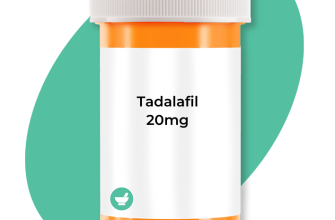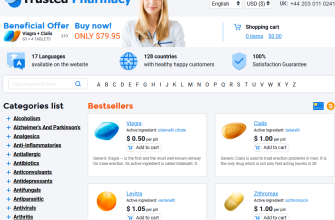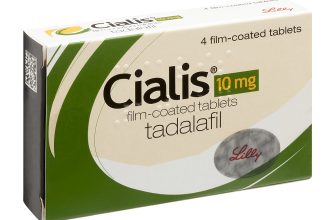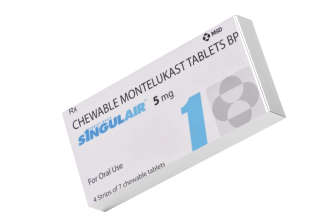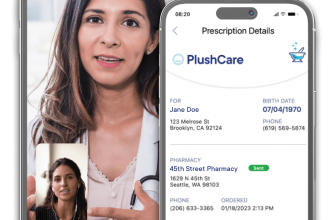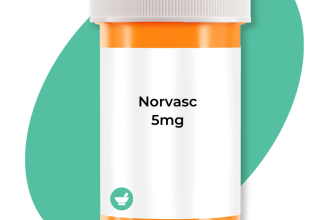Consider discussing with your healthcare provider the benefits of Paxil if you’re looking for a treatment option for anxiety or depression. This selective serotonin reuptake inhibitor (SSRI) effectively addresses various mental health concerns, providing relief for many individuals.
Research the availability of Paxil through reputable online pharmacies or local drugstores. Ensure the source is reliable, as purchasing medication from unverified sites can pose health risks. Look for licensed pharmacies that require a prescription, ensuring that you’re receiving a legitimate product.
Monitor your dosage and follow your doctor’s instructions closely. Adjustments may be necessary to achieve the best results. Maintain an open line of communication with your healthcare provider, discussing any side effects or concerns that arise during your treatment journey.
Explore support options alongside your medication. Therapy or counseling may enhance the effects of Paxil, helping you develop coping strategies and a deeper understanding of your mental health. Combining medication with professional support often leads to improved outcomes.
Taking the time to educate yourself about Paxil and how it fits into your personal wellness plan can contribute significantly to your well-being. Aim for a balanced approach, prioritizing both medication and lifestyle changes for optimal mental health.
- Buy Paxil: A Comprehensive Guide
- Where to Buy Paxil
- Pricing and Insurance
- Understanding Paxil: Uses and Indications
- Common Uses of Paxil
- Dosage and Recommendations
- Where to Buy Paxil: Online vs. Local Pharmacies
- Pricing of Paxil: What to Expect
- Insurance and Discounts
- Pharmacy Variation
- Dosage Forms of Paxil: Tablets vs. Liquid
- Paxil Prescription: How to Obtain It Legally
- Getting a Prescription
- Adhering to Guidelines
- Potential Side Effects of Paxil: What You Should Know
- Paxil Alternatives: Other Medications to Consider
- Other SSRIs
- Alternative Classes of Medications
Buy Paxil: A Comprehensive Guide
To obtain Paxil, visit a licensed pharmacy or consult a healthcare provider. This medication requires a prescription due to its classification as an antidepressant. Your doctor will assess your condition and determine the appropriate dosage tailored to your needs.
Where to Buy Paxil
Purchase Paxil at reputable retail pharmacies or through verified online pharmacies. Ensure the online source is legitimate by checking for licensing and customer reviews. Avoid purchasing from unverified websites as they may lack quality assurance.
Pricing and Insurance
The cost of Paxil varies by location and pharmacy. Check with your insurance provider to determine coverage details. Many pharmacies offer discounts or generic alternatives, which can significantly lower expenses. Always compare prices across different suppliers to find the best option.
Prioritize open communication with your healthcare provider about any concerns or side effects experienced while taking Paxil. Regular follow-ups can help manage your treatment effectively.
Consult additional resources or support groups for more information on coping strategies and shared experiences with Paxil. This broader perspective can enrich your understanding and support your journey toward wellness.
Understanding Paxil: Uses and Indications
Paxil, known generically as paroxetine, primarily treats major depressive disorder, anxiety disorders, and obsessive-compulsive disorder (OCD). Patients experiencing panic attacks or social anxiety disorder may also benefit from this medication. It acts by adjusting serotonin levels in the brain, which can help improve mood and emotional balance.
Common Uses of Paxil
The following conditions are commonly addressed with Paxil:
| Condition | Description |
|---|---|
| Major Depressive Disorder | Paxil alleviates symptoms such as persistent sadness, lack of interest, and fatigue. |
| Generalized Anxiety Disorder | This medication helps reduce excessive worry and anxiety that interfere with daily life. |
| Panic Disorder | Paxil minimizes the frequency and severity of panic attacks. |
| Obsessive-Compulsive Disorder (OCD) | It helps reduce the compulsive behaviors and obsessive thoughts associated with the disorder. |
| Social Anxiety Disorder | Paxil alleviates anxiety in social situations, improving overall social functioning. |
Dosage and Recommendations
Starting dosage typically begins low, allowing the doctor to assess the response. Regular follow-ups help determine the appropriate dose for optimal benefits. Stopping Paxil abruptly can cause withdrawal symptoms; therefore, any changes to the regimen must be discussed with a healthcare provider.
Where to Buy Paxil: Online vs. Local Pharmacies
For purchasing Paxil, online pharmacies often provide convenience and competitive pricing. Research reputable online platforms that require a prescription and verify their licenses to avoid scams. Sites like HealthWarehouse and CVS offer safe online options with pharmacy consultations available.
Local pharmacies have the advantage of personal interaction. You can discuss your needs with a pharmacist, ensuring you understand the medication and its usage. Major chains like Walgreens and Rite Aid usually stock Paxil and may offer easier access to physical consultations and immediate pickup.
Insurance plans frequently cover prescriptions filled at local pharmacies. Check with your provider to determine coverage for Paxil when purchasing in-person. Online pharmacies may not always accept insurance, leading to out-of-pocket costs.
For those seeking discretion, online buying can be beneficial. Many people prefer the privacy that comes with ordering medications without face-to-face interactions. Ensure that the site has a secure checkout process for peace of mind.
In summary, both online options and local pharmacies have unique benefits. Carefully weigh your priorities–convenience, pricing, insurance coverage, or personal interaction–before deciding where to buy Paxil.
Pricing of Paxil: What to Expect
Paxil, a common medication for treating depression and anxiety, varies in price based on several factors. Generally, the cost can range from $15 to $300 per month, depending on the dosage and whether you’re purchasing a generic version. Generic Paxil is usually more affordable, significantly reducing expenses for most patients.
Insurance and Discounts
If you have insurance, check your plan to see if it covers Paxil. Many insurance companies partially reimburse the cost, leading to lower out-of-pocket expenses. Additionally, consider looking for discount programs or coupons offered by pharmacies. Programs from manufacturers may also reduce costs for eligible patients.
Pharmacy Variation
Prices can vary between pharmacies, so shop around. Local pharmacies may not always have the best price. Online pharmacies or wholesale clubs often offer competitive rates. Always ensure that you’re purchasing from a licensed pharmacy for safety and legality.
Dosage Forms of Paxil: Tablets vs. Liquid
Paxil, commonly prescribed for anxiety and depression, is available in two primary forms: tablets and liquid. Each form has its own advantages, depending on individual needs and preferences.
- Tablets:
- Available in 10 mg, 20 mg, 30 mg, and 40 mg strengths.
- Convenient for those who prefer a solid dosage.
- Easy to carry and store.
- Typically taken once daily, which helps with adherence to the treatment plan.
- Liquid:
- Comes in a concentrated solution, usually available in a 20 mg/5 mL formulation.
- Ideal for individuals who have difficulty swallowing pills.
- Allows for flexible dosing, beneficial for those needing adjustments in medication amounts.
- Can be mixed with a small amount of food or drink for easier ingestion.
Choosing between tablets and liquid forms of Paxil largely depends on personal circumstances. Discussing preferences with a healthcare provider can facilitate the best choice for effective treatment. Always ensure adherence to the prescribed dosage to achieve optimal benefits from the medication.
Paxil Prescription: How to Obtain It Legally
To obtain a Paxil prescription legally, follow these steps:
- Consult a licensed healthcare provider. Schedule an appointment with a psychiatrist or your primary care physician who can evaluate your mental health needs.
- Be open during the consultation. Discuss your symptoms honestly, including any anxiety, depression, or other related issues you’ve been experiencing.
- Follow the doctor’s recommendations. They may suggest a treatment plan that could include Paxil, or they might recommend other alternatives.
Getting a Prescription
If your doctor prescribes Paxil, ask about the dosage and how to take it properly. It’s essential to clarify any potential side effects and interactions with other medications.
- Visit a pharmacy after receiving your prescription. Choose a licensed pharmacy to ensure you’re getting genuine medication.
- Check with your insurance provider to understand any coverage related to Paxil, as this can affect your out-of-pocket costs.
Adhering to Guidelines
Always use Paxil as directed by your healthcare provider. Regular follow-ups will help monitor your progress and adjust dosages if necessary. Avoid obtaining Paxil from unregulated sources, as this can be unsafe and illegal.
Consider joining support groups or therapy sessions alongside medication for a more holistic approach to your mental health.
Potential Side Effects of Paxil: What You Should Know
Be aware of common side effects when taking Paxil, as they can affect daily life. These include nausea, drowsiness, dizziness, and insomnia. Managing these symptoms often involves adjusting the dosage or timing of the medication.
Some users report weight gain, which can arise from changes in appetite or metabolism. Maintaining a balanced diet and regular exercise may help mitigate this issue. Consult your healthcare provider to assess any noticeable changes and explore alternatives if needed.
Sexual dysfunction is another potential side effect, impacting libido or causing difficulty achieving orgasm. Open communication with a healthcare professional allows for adjustments or alternative treatments to address these concerns effectively.
Monitor for any signs of serotonin syndrome, a rare but serious condition. Symptoms include rapid heart rate, hallucinations, or extreme agitation. If these occur, seek immediate medical attention.
Discontinuation syndrome can occur if Paxil is stopped abruptly. This may lead to withdrawal symptoms such as irritability, fatigue, and flu-like symptoms. It is important to follow your doctor’s guidance on tapering off the medication to minimize discomfort.
Keep track of any severe or persistent side effects and discuss them with your healthcare provider. Regular check-ins ensure that your treatment plan is tailored to your needs and health status.
Staying informed and proactive about side effects not only enhances your treatment experience but also contributes to better overall mental health management. Always reach out for any concerns or questions regarding your medication.
Paxil Alternatives: Other Medications to Consider
If you’re looking for alternatives to Paxil, several medications may suit your needs. Selective Serotonin Reuptake Inhibitors (SSRIs) like Escitalopram (Lexapro) offer similar benefits with potentially fewer side effects. This option is effective in treating depression and anxiety disorders.
Other SSRIs
Citalopram (Celexa) is another SSRIs that can help manage symptoms effectively. It’s particularly helpful for those who are sensitive to side effects and may experience fewer interactions compared to Paxil. Fluoxetine (Prozac) also stands out for its long half-life, which may reduce withdrawal symptoms when discontinuing the medication.
Alternative Classes of Medications
SNRIs, such as Duloxetine (Cymbalta) and Venlafaxine (Effexor XR), work on both serotonin and norepinephrine. These medications can be beneficial for individuals experiencing pain alongside mood disorders. Another option includes Bupropion (Wellbutrin), known for its lower risk of sexual side effects and potential weight neutrality.
Consult with your healthcare provider to determine which option aligns best with your health needs and symptoms. Monitoring your response to any new medication is vital for achieving optimal results.


